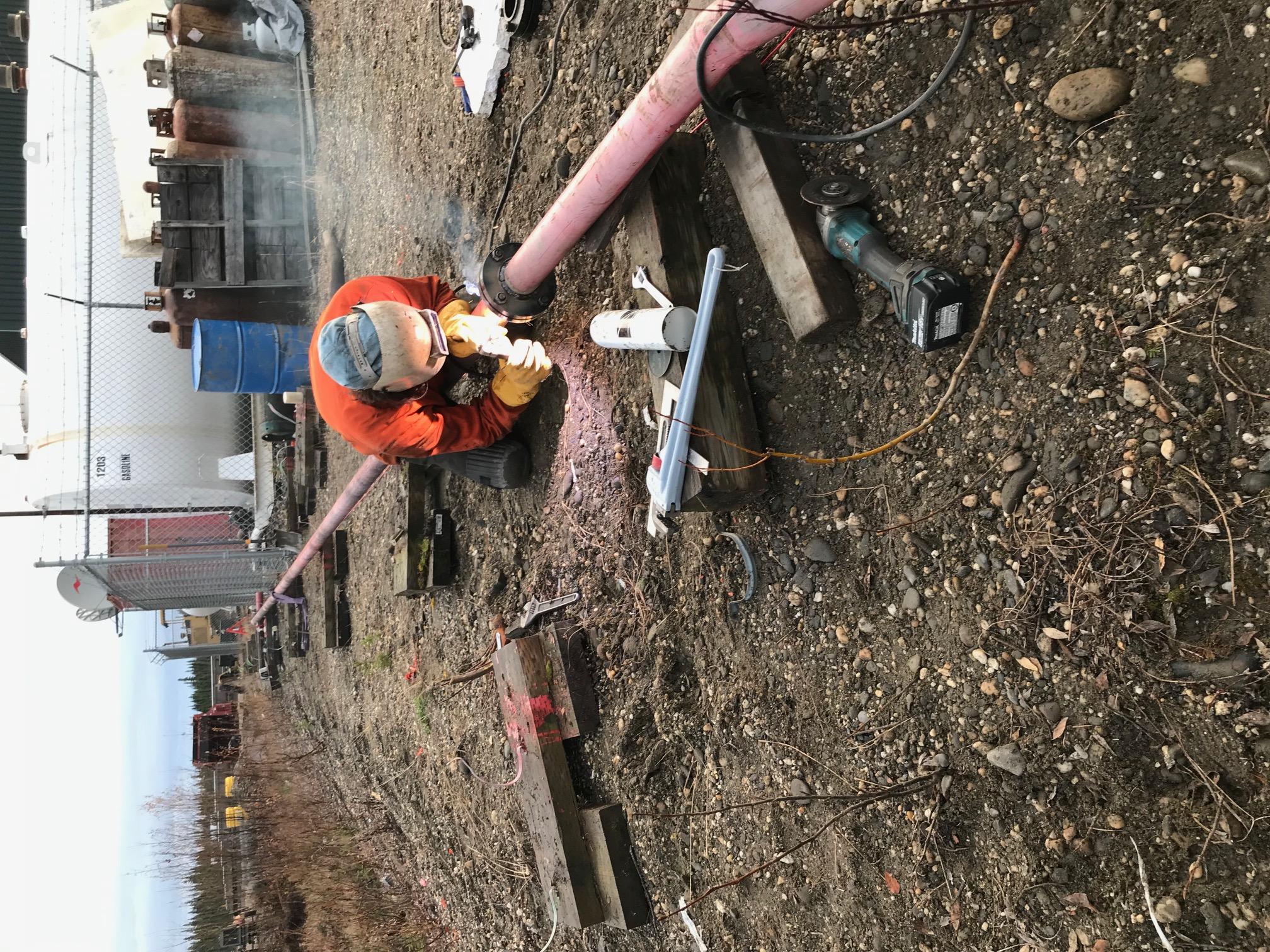
- Details
- By Tripp J Crouse - KNBA
President Joe Biden signed the Infrastructure Investment and Jobs Act into law on Monday, November 15. The Senate passed the $1.2 trillion dollar bill in August. Thirteen Republicans -- including at-large Alaska Congressman Don Young -- joined the majority of Democrats to pass the bill.
This story was originally published by KNBA on November 22, 2021. Read the original story at KNBA. Republished by Native News Online with permission.
The infrastructure funding package will deliver $550 billion dollars in federal investments over five years. The money will go to support roads, mass transit, rail projects, renewable energy and improving broadband.
Want more Native News? Get the free daily newsletter today.
“This is a good, healthy start, and it's not going to cover everything, but it covers a lot of everything,” said PJ Simon, Tanana Chiefs Conference chief and chairman PJ Simon. “It improves our quality of life.”
He says climate change and COVID-19 continues to stress communities within the consortium.
The last couple of years have spotlighted the disparity and inequities that Alaskans -- and particularly rural Alaskans and Alaska Native communities -- have faced: Inconsistent ferry transportation, water-and-sanitation issues and broadband connectivity and more.
“We have experienced chronic underfunding for many of our Native programs,” U.S. Senator Lisa Murkowski said. Her office released a breakdown of Alaska highlights of the infrastructure package.
The funding package clears more than $180 million over five years for water and wastewater projects in Alaska. That’s in addition to $3.5 billion for Indian Health Services sanitation facilities to make improvements to water and sanitation -- including in rural Alaska Native communities.
“What this means to us is really finally getting to the point where we're not just talking about putting the honey bucket in the museum, but we are actually putting in place water systems to provide safe drinking water for our villages and getting a flush toilet for heaven's sake.”
Murkowski said the various factors in the funding package made it difficult to determine a hard dollar total that Alaska could expect to see.
“It's hard to estimate or figure out what the total overall number for Alaska is because about half of this money is through formula funds,” Murkowski said. “In other words, programs that are already in existence that we have just increased the formula amount. So we can look at that and we can make a pretty good estimate. But the other $550 billion that we're talking about will come by way of grants, programs.”
Murkowski said she hopes to host a grant symposium in early 2022 to share more information about application process and the timeline.
“Making sure that Alaskans are eligible for these grant programs is going to be a key consideration in many, many areas that we have put in place.”
The funding package includes about $410 million for renewable and green energy projects. Tanana Chiefs Conference chief Simon says he’d like to see more solar and hydro projects in the Interior.
“As we transition -- as America transitions away from the fossil fuels -- getting into renewables, we're excited again,” Simon said. “This funding, this package by Congress and D.C. is really going to help us out a lot. There's so much need out there, and I'm glad the Biden-Harris administration recognized that along with the Alaska delegation and Secretary Haaland.”
Top Biden administration officials say it be next year before we start seeing the results of the bill’s investments.
More Stories Like This
Native News Weekly (August 25, 2024): D.C. BriefsUS Presidents in Their Own Words Concerning American Indians
Oral History Project Announces 14th Stop in Portland, Oregon: NABS Continues to Gather Crucial Stories Across Indian Country
Tunica-Biloxi Tribe Acquires GovStrive, Expanding Presence in Federal Workforce Solutions
Small-Dollar Donors Fuel Deb Haaland’s Historic Campaign for New Mexico Governor
Help us tell the stories that could save Native languages and food traditions
At a critical moment for Indian Country, Native News Online is embarking on our most ambitious reporting project yet: "Cultivating Culture," a three-year investigation into two forces shaping Native community survival—food sovereignty and language revitalization.
The devastating impact of COVID-19 accelerated the loss of Native elders and with them, irreplaceable cultural knowledge. Yet across tribal communities, innovative leaders are fighting back, reclaiming traditional food systems and breathing new life into Native languages. These aren't just cultural preservation efforts—they're powerful pathways to community health, healing, and resilience.
Our dedicated reporting team will spend three years documenting these stories through on-the-ground reporting in 18 tribal communities, producing over 200 in-depth stories, 18 podcast episodes, and multimedia content that amplifies Indigenous voices. We'll show policymakers, funders, and allies how cultural restoration directly impacts physical and mental wellness while celebrating successful models of sovereignty and self-determination.
This isn't corporate media parachuting into Indian Country for a quick story. This is sustained, relationship-based journalism by Native reporters who understand these communities. It's "Warrior Journalism"—fearless reporting that serves the 5.5 million readers who depend on us for news that mainstream media often ignores.
We need your help right now. While we've secured partial funding, we're still $450,000 short of our three-year budget. Our immediate goal is $25,000 this month to keep this critical work moving forward—funding reporter salaries, travel to remote communities, photography, and the deep reporting these stories deserve.
Every dollar directly supports Indigenous journalists telling Indigenous stories. Whether it's $5 or $50, your contribution ensures these vital narratives of resilience, innovation, and hope don't disappear into silence.
 The stakes couldn't be higher. Native languages are being lost at an alarming rate. Food insecurity plagues many tribal communities. But solutions are emerging, and these stories need to be told.
The stakes couldn't be higher. Native languages are being lost at an alarming rate. Food insecurity plagues many tribal communities. But solutions are emerging, and these stories need to be told.
Support independent Native journalism. Fund the stories that matter.
Levi Rickert (Potawatomi), Editor & Publisher
